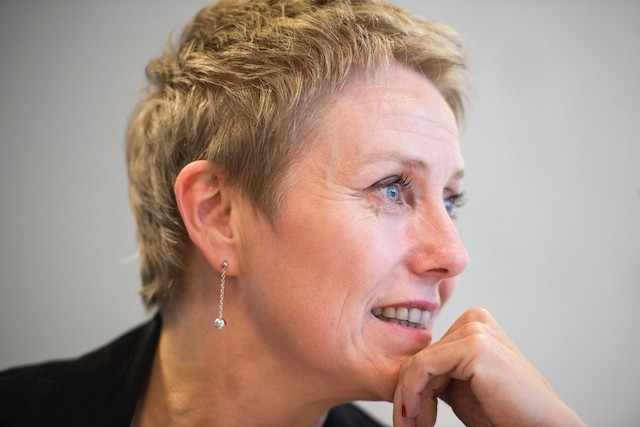How can Europe recover its lost sovereignty over its data in the face of American appetites? How can its administrations, businesses and citizens escape the stranglehold of cloud giants?
Becoming increasingly nervous to see their data getting out of control, German car manufacturers were the first to sound the alarm by launching the Gaia-X initiative, which consists of setting up an infrastructure and a catalog of “European” solutions.
On Thursday via Boothted, a Luxembourg video-conferencing tool, the grand duchy organised a launch ceremony for the Gaia-X regional hub, the fourth after those launched in Germany, France and Belgium, before launching 12 to 14 regional hubs by the end of June and more by the end of the year.
Minister Fayot announced that the management and coordination of the hub would be entrusted to Luxinnovation and that Luxembourg would actively participate in three of the eight groups imagined by the European initiative (finance, health and energy). The CEO of the agency for the promotion of innovation and research, Sasha Baillie, has recruited Peter Sodermans, who has just spent 11 years at the forefront of innovation as imagined by the government, since he was adviser to the prime minister at the service of media and communications.
He will have at his side a first version of a “steering committee”, with Mario Grotz (Director General at the Ministry of the Economy), Yves Reding (CEO of EBRC, but in his capacity as president of Cloud Community Europe - Luxembourg), Georges Santer (Fedil) and Jean Hilger (vice-president of ICT Luxembourg).
In her presentation of the new regional hub, Baillie insisted on the mobilisation of European and national funding, within the framework of this project and supported by the European data strategy, but also on the opportunities for "Luxembourg" representatives of companies, public services or the world of research to participate in the development of norms and standards at European level.
Clinnova, an example for Europe
She also mentioned the interest of the Luxembourg Clinnova project, which for the past five years has brought together the main players in health research around the themes of digital health and personalised health.
It is now up to the actors of the different public, private or research spheres to raise their interest in participating in the various future projects.
During the conference, enhanced by the participation of Hubert Tardieu (chairman of the board of directors of the international non-profit organisation Gaia-X), Peter Kraemer (coordinator of the German hub of Gaia-X) and Daniel Ratier (member of the French hub of Gaia-X and director of companies at the French ministry of the economy and finance), two others insisted on another aspect of particular interest to Luxembourg: space.
Pascal Rogiest, ex-CEO of Luxtrust, chief European institutions officer of Rhea Group and managing director of Rhea System Luxembourg, and Élodie Viau, director of telecommunications and integrated applications at the European Space Agency, came to give the advantages of their idea of a new axis, that of space, so that the European initiative “adopts” it.
In less than five months, a quartet made up of Rhea Group, EBRC, 3DS Outscale (a subsidiary of Dassault) and CS Group managed to convince Airbus, Thales Alenia Space, Safran, OVHcloud, ESA, Telespazio, Capgemini, Promethee, Cysec and Mindo to push the idea. Heavy industry, space and aeronautics…, but no trace of the Luxembourg champion and world number one satellite operator, SES, who, on Thursday too, published (probably by chance) a blog post on the meaning of its partnership with Microsoft's Azure for its cloud offering.
An “Airbus from the cloud” to come
And if the non-profit organisation Gaia-X is often presented by its promoters as an “Airbus of artificial intelligence”, Baillie drew the attention of the 350 people who followed the conference to another “Airbus”, that of the cloud of the future: a new IPCEI, “important project of common European interest”, expected to launch shortly, after the one on batteries, to which Belgium, Finland, France, Germany, Italy, Poland and Sweden have decided to provide €3.2bn to generate €5bn of additional private investment.
IPCEI Next Generation Cloud Infrastructure and Services has been formally discussed since 15 October... and Luxembourg will support it, Baillie assured. This makes sense given the infrastructure that has been put in place in Luxembourg for years, and it is strategic at a time when the Internet of Things--from cars to refrigerators to watches, cities and homes--is going to completely revolutionise everyday circumstances.
The general assembly of the international association Gaia-X will be on 7 June.
This article was originally published in French on Paperjam.lu and has been translated and edited for Delano.
